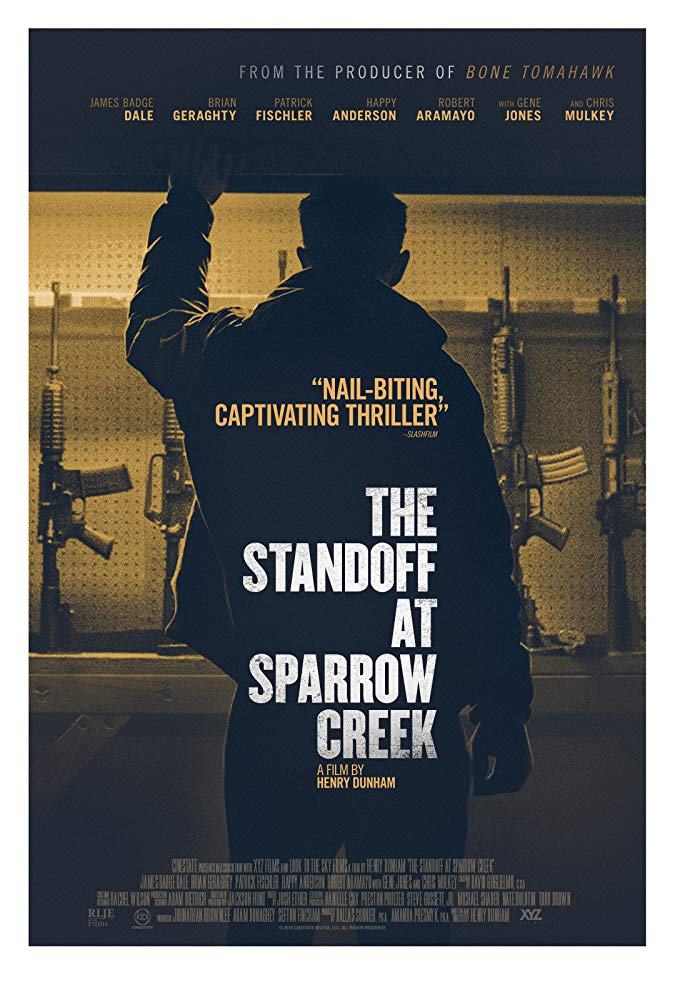
In writer/director Henry Dunhan's latest effort, THE STANDOFF AT SPARROW CREEK, the filmmaker brilliantly crafts a single-location drama with enough suspense and thrill to rival even the most action-packed shoot 'em ups. Revolving around the aftermath of an attack on a police funeral and the subsequent interrogation of possible suspects, Dunham's feature debut is a complex and witty character drama within a grand-scale context that builds intensity right up to the surprising conclusion. At Fantastic Fest 2018, I had the opportunity to sit down with Dunham and discuss his terrific film.
Kellerman: Thank you so much for taking time today to chat with me about your amazing film. I really appreciate it.
Dunham: I have to tell you first though, Ain't It Cool has been probably the longest... since way back when I was obsessed with news about Batman Begins. I would go to Ain't It Cool and to this other site called batmanmovienews.com. Quint was the guy, who I was always like, I like his reviews.And I was obsessed with him and it's so funny because... do they still do Saturday shorts?
Kellerman: Sadly, it's not around anymore. My buddy Muldoon did that column for many years.
Dunham: I made a short film called THE AWARENESS probably five years ago now, and I was obsessed with getting it on Saturday Shorts. I put it on Vimeo and it got staff pick and short of the week and all that stuff and then I just went to Ain't It Cool and it was up there. I was like, holy shit! I called my brother and was like, it's on Ain't It Cool, and he's like, "It is?!" It was awesome.
Kellerman: I'll totally tell Muldoon! He'll be excited to hear that.
Dunham: I was telling everybody, I was like, Ain't It Cool and Collider, I need to tell them that I'm basically just a huge movie nerd who lucked out, that my stuff is on their sites.
Kellerman: And now here we are, talking about this feature. It's kind of like a cheese-ball question but I do have to know, what was your inspiration for this story? Where did it come from? It kind of almost seems like it could be a play.
Dunham: It's weird it ties back to my short roots. I had always wanted to write and direct. I had done that short, and it had done really well, and- maybe not the day, but probably the week where that happened, where it was well received and people really liked it, and it's this onslaught of validation including it being on Ain't It Cool- I went to a bar with a friend of mine in LA. We were just standing there, and I was looking around. It was just one of those gross, seedy, bullshit places where I just looked around and I was just like, what am I doing here? I did this thing I always wanted to do. I'm so happy, and I'm just back in this place that sucks. Is this it? And I had a complete anxiety attack. I left and I went home and I was just like, "I don't want to do this anymore. I wanna just be alone and I wanna work. I love working and that's gonna be my thing." I always try to work form a point of stuff that scares me. So when I started feeling that, I was like- if there's a story there, and it's a strong enough human emotion to rattle me, the most painful thing that could happen to a person who experiences that. And I was like, well it's to realize you need the group, you need that bar, even if it sucks. Because being alone will literally kill you, you will go nuts. Like it or not, connection is such a primal, unavoidable force that you'll be at the bar, even if you don't want to. You start thinking about it like, oh my god, are those people in the bar who are looking around at me going, what the fuck am I doing here with that guy? So it really just went from there and then choosing the group to dramatize it. You can tell that story in so many different arenas, so to speak, but I would rather see it in one that I have nothing to do with, I have nothing in common with. To dramatize something universal and human like that in a group that you don't really have any idea of what goes on inside it. To me, that was just way more interesting and it would, sort of, force the audience to go, "I don't want to have anything in common with this group, but I'm feeling something in common, and that puts me in a weird position." It always starts with a story and character once you realize that protagonist and his emotional through-line.
Kellerman: There seems to be a theme of sacrifice for the greater good on either side of the equation. Was that always something that you had in mind or is this something that emerged as the writing process unfolded?
Dunham: It's weird because I wrote the script, well the first draft of the script, so long ago- it’s probably been like six years. And when I wrote it at that point I was much more into theme than I am now. Now, I would say it's much more important to me to know, one hundred percent, clear goals and obstacles that the audience can identify within the story and then let the theme emerge out of that. Whereas, when I wrote that first draft it was like, okay, it's all about serving this fanatic question. And so there's stuff in there that was watered down quite a bit, in my opinion, to a good result. Because when it was first there, it was just this preachy, soap boxy, bull shit about individualism. As I got older and I revisited it once, I was like, this is awful and it needs to be an actual story with those echos of the theme kind of with the volume turned down, so to speak. I always think that some of my favorite stories always have that fanatic question, kind of echos in the subplots, echos in the locations. Now I'm actually really curious if that comes through to the audience at all. Or if it's like you go from one place to the other and I'm still just tracking an emotional story.
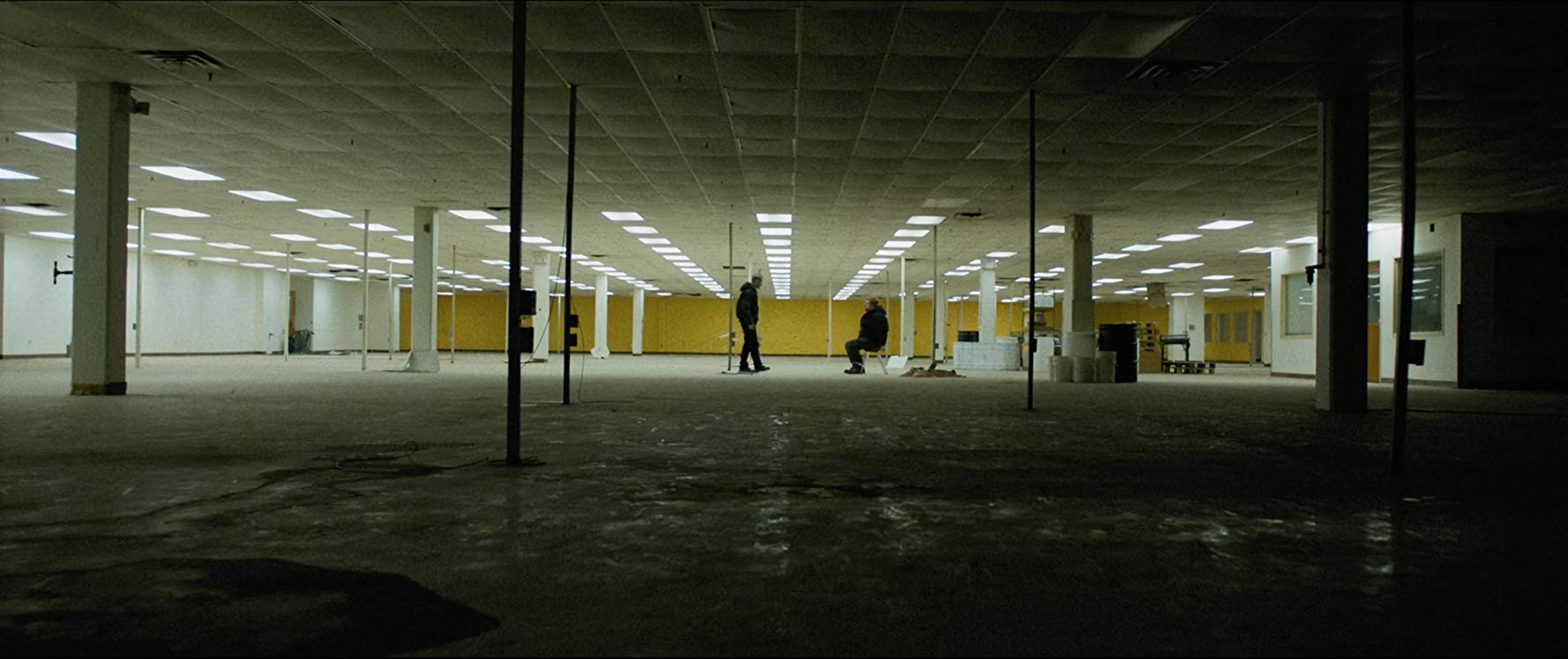
Kellerman: No, I definitely picked up on those themes. But you're right, you weren't beating me over the head with it. That's interesting that you kind of went through an evolution where it was all about that and then you kind of stepped back. Forgive me if I missed some cues or maybe not, is there any score? I didn't think so, can you talk about that choice?
Dunham: It had always felt like it needed to be scoreless, because I think that a lot of times in movies music can be really good at helping an emotion along but sometimes it's so indicating that it doesn't let you feel stuff. It tells you how to feel. I think it's much more interesting when you put the audience in the position of, they can sort of drive their own car in how they want to feel about these things and react to these things. Again, because it's something that's so claustrophobic, and taught, and tense, I think that any kind of sonic road sign, if that makes any sense, would just make you feel more certain about what's coming. Having that not be there makes the audience go, "I'm not given any kind of cues." I think that just felt more exciting.
Kellerman: Oh, it definitely helped with the overall tension.
Dunham: Thank you very much. On top of that, the short that was on Ain't It Cool was kind of like a cousin piece to this. It's mostly two characters in a warehouse with a lot of fucking dialogue. It's basically a stage play. I had always been like, that needs to be scoreless for the same reason with a very minor string section at the end. It just felt like nine times out of ten, when you're doing these things, you can have all the explanation in the world but really it comes down to, does that feel right for this story? For this one, it just hit.
Kellerman: I guess it could be different for your next film, like if you want to lead people into a certain emotion. It worked because I saw another film at this festival that had no score in it and it really didn't.
Dunham: Oh no.
Kellerman: For me it didn't. Maybe other people would disagree. And then I'm like, here's this other film that has no score and it completely worked. There was so much intensity without being handheld to that emotion. I enjoyed that.
Dunham: Thank you very much. I'm happy to have that effect because- this is just nuclear level pretension so feel free to roll your eyes as much as you want- but I'm from Michigan originally and not out in the part where it's overwhelming rural, but whenever we would go to places like that, you would always hear all kinds of background fillers. There's some pnuematic machine on autopilot that's running through the night, pressing sheet metal or something. You hear it and it almost functions as this strange, organic, ticking clock, so to speak. There isn't a score in the normal verse but there's the timer light, there's a train on this schedule that we have in the background. There's a sheet metal press we had that was sort of constantly, whether the audience hears it or not, pounding away.
Kellerman: The score of our lives. The score of the world.
Dunham: The building we're all inside, I was very anal about which [sounds] went where because those sort of start out as a pressure cooker. You hear the metal [of the building] kind of breathe every once in a while, and by the end they're running like it's the fucking Titanic going down. The sound mixer was just like, "Are you sure you want to go that loud?" And I was just like, "Yeah, it needs it."
Kellerman: To be perfectly honest, I didn't even pick up on those cues. I'm sure it just felt more organic to what was going on in the story.
Dunham: As long as you don't notice it, that's good. If you just feel it, that's great.
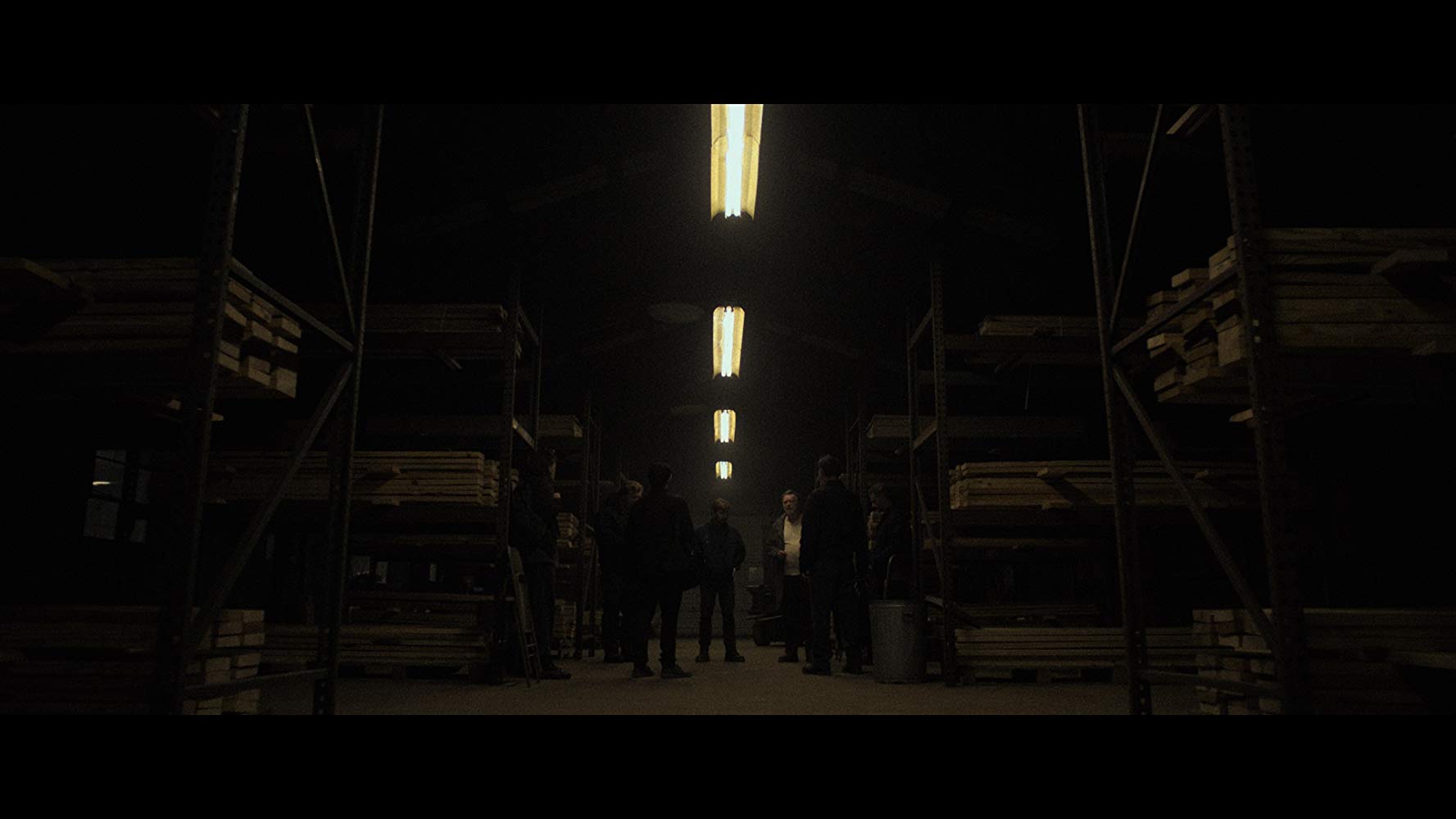
Kellerman: It wasn't like, that building sure is loud now. No, not at all. So you're from Michigan, what kind of research did you do about militias and weaponry You also had a lot of details with police jargon and even the details with some tech stuff or even the more rudimentary radio system they were using to communicate and surveil. Can you talk about your research on that sort of stuff?
Dunham: There was a very important pivot moment when I was doing a bunch of research on militias and finding that it was all so scattered and so different that I was like, this isn't the right place to be doing research on them. I found that it was much more helpful to do the research- the heavyweight of research- on that groupthink mentality. Focusing all on that and then letting the audience decide, because I didn't want this going to their ideology at all. I don't give a shit [about militias], and that's so boring. The minute somebody starts soap boxing about that, I'm just like, thanks but I'm out. And you lose half of your audience. It's just this alienating rant about something that I just don't give a shit about. Same with their politics. I don't care. That's not my field of expertise. So really most of the research was done on psychological stuff, about things like the Nuremberg Trials or the Abilene paradox where it's just people losing themselves to a group, because then if I can have that kind of grounded in reality, the audience is that much more of a access point into something that they otherwise would just feel really alienated by. As far as the police stuff, there are so many books out there of jargon and some of it you gotta love and you're just like, yeah that sounds good. Nine times out of ten I just made it up. There's some shit in there that I'm sure if a cop heard, he'd be like, "That doesn't make any since." Yeah, but the story is where we should be focused.
Kellerman: Well it came off as pretty legit. I was like wow this seems like somebody really did their research.
Dunham: Yeah, on something else.
Kellerman: It is interesting because clearly there is a lot of the dynamic with the interrogation and all the psychological techniques that goes into it, so that's more of where your focus was?
Dunham: There are a few books, but there was one, I think it was just called 'Advanced Interview Tactics,' or something like that, where I did a lot of research about that stuff, because that is more of a human interaction thing. It was really fascinating to look into interrogations. People always have this idea of an incredibly hostile thing, when really your whole goal is to be like, "We're on the same side and I'm offering you a way out." It's this structured, pseudo friendship and that to me was really fascinating.
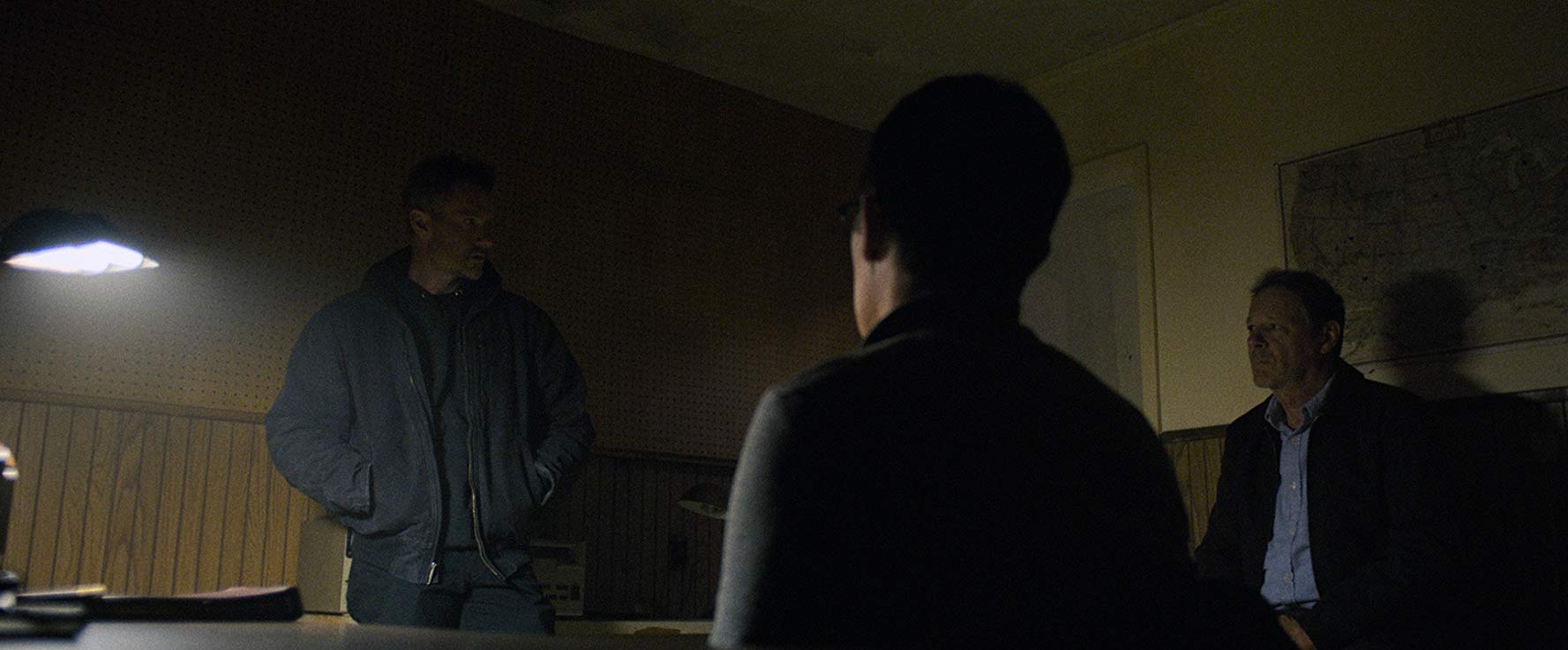
Kellerman: Well, I’m about to get kicked out of here, but can you talk about the casting really fast? You have Chris Mulkey, James Badge Dale, and a cast full of incredible character actors that give riveting performances. Can you talk about finding this incredible cast?
Dunham: From the start it felt like this needs to be full of people from great TV shows that you watched and loved. You feel when they walk in almost safe enough for having seen them do great work, but not recognized enough for you to sort of lose your buy. If Nick Cage, walked in that room, you'd be like, I don't buy it. But everyone of these guys, they flow up so well together, and I kept saying it, everybody, that we’re casting this like it's an HBO mini series. Just great actors. Thankfully the producers were onboard.
Kellerman: Hopefully you got everyone you wanted.
Dunham: Oh yeah, I was spoiled. We did the table reading for the first time and we kind of all looked around like, okay, great!
Kellerman: You has to pinch yourself! That's so cool. Congratulations. I feel like I have ninety more questions but it’s time for me to go!
Dunham: Thank you so much.
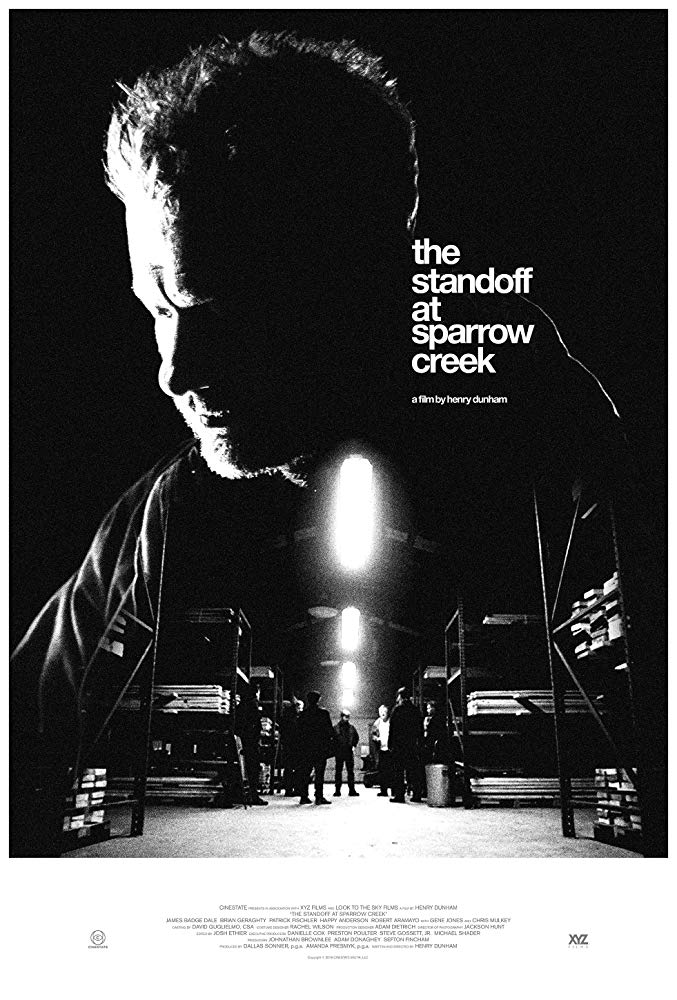
I hope you enjoyed our chat! THE STANDOFF AT SPARROW CREEK opens in theaters 1/18. Check out the trailer below featuring a quote from little old me. Thanks for reading!
Until next time,
Rebecca Elliott
Aka Annette Kellerman
